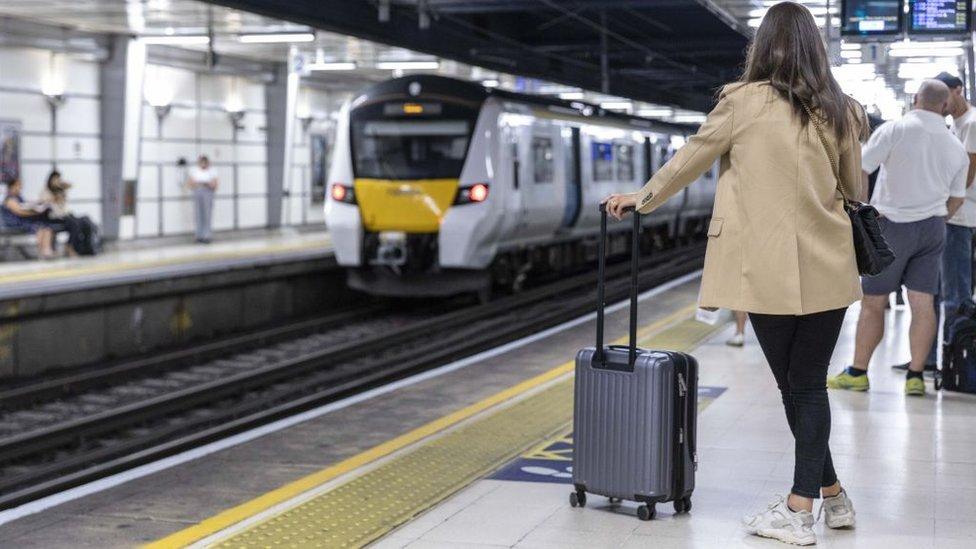UK strikes: Railway workers, teachers and NHS staff will take part industrial action this month
- Published
- comments
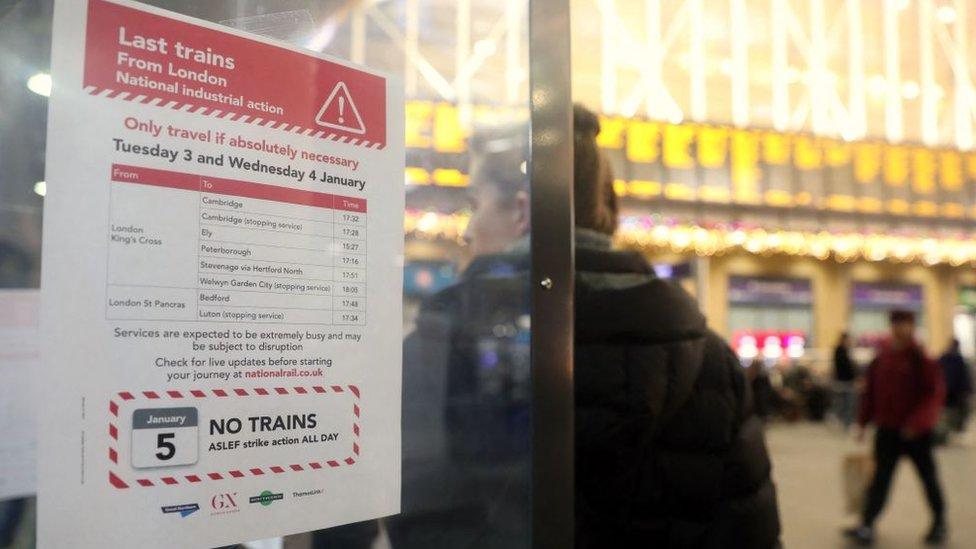
Industrial action continues this year as workers strike over pay and working conditions
Lots of people across the UK are returning to school and work this week after the Christmas break.
However, many who rely on trains to get around are set to face some big disruptions.
It's because lots of railway workers are striking over their pay, working conditions and the future of their jobs.
The organisations which represent railway workers are known as trade unions. They've said any increases in pay for their members should reflect the rising cost of living which has impacted people right across the UK.
However, the rail industry is under increasing pressure to save money following the pandemic.
Where are we now?
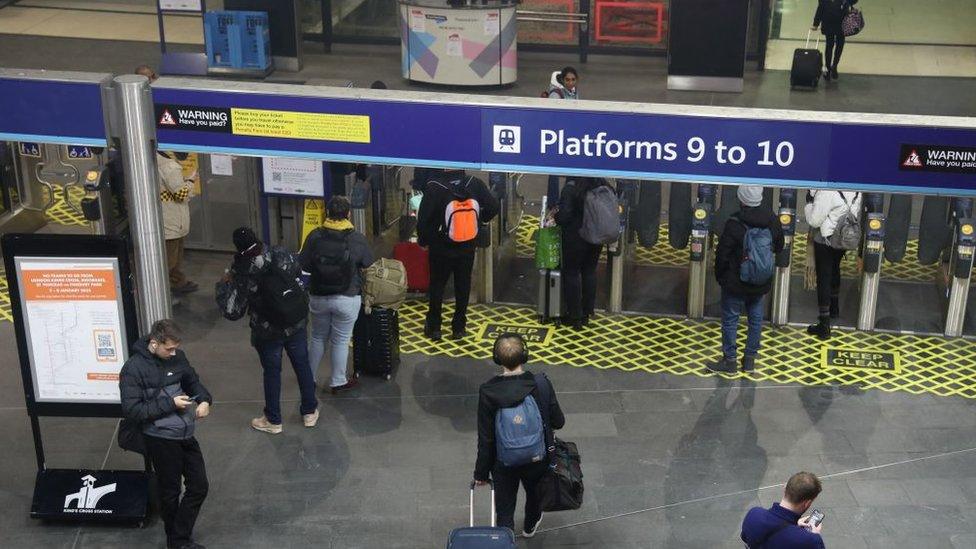
Passengers have been advised to avoid travelling on the trains where they can
Last year Network Rail, which owns and looks after Britain's railways, offered a 5% pay rise to workers and a 4% rise in 2023. However, this was rejected by over half of the union members.
Rail strikes have now been going on for months, with disruptions in the lead up to Christmas last year in England, Scotland and Wales.
Around 40,000 members of the National Union of Rail, Maritime and Transport Workers (RMT) will be striking on 3-4 and 6-7 January, while Aslef members strike on 5 January.
Network Rail has said the strikes will "significantly impact" services, with the action leading to around 20% of services running between Tuesday and Saturday. Many areas are expected to not see any trains at all.
The company has told passengers to only travel by train if "absolutely necessary" over the next few days.
"We're sorry to have to, once again, ask passengers to avoid using the railway this week," a spokesperson from Network Rail said.
What have the unions said?
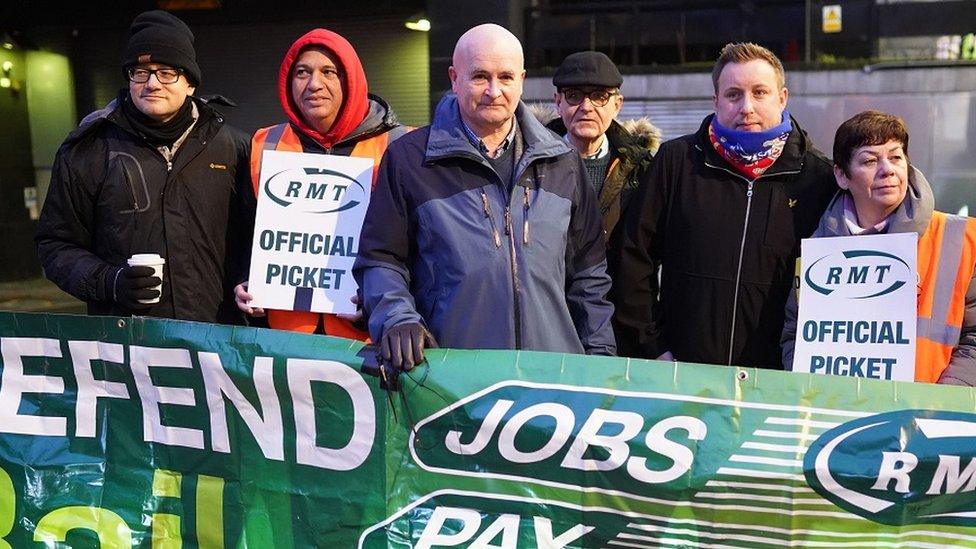
RMT general secretary Mick Lynch (centre) has accused the government of "sitting on their hands" and failing to help secure a deal between railway workers and companies
The RMT's general secretary Mick Lynch said his members wanted an agreement to be reached, and not further disruption to the railways.
He also accused government ministers of "sitting on their hands" and failing to help secure a deal between railway workers and railway companies.
"They keep saying that they're facilitating a deal. And I think it's absolutely the opposite to that," he said.
However, a Department for Transport spokesperson rejected this, saying: "The government has demonstrated it is being reasonable and stands ready to facilitate a resolution to rail disputes.
"It's time the unions came to the table and played their part as well," they said.
Meanwhile, Network Rail has said the deal it put forward to the RMT is "fair and reasonable", and urged the union to "sit down with us" and revisit it.
What other strikes are taking place throughout January?
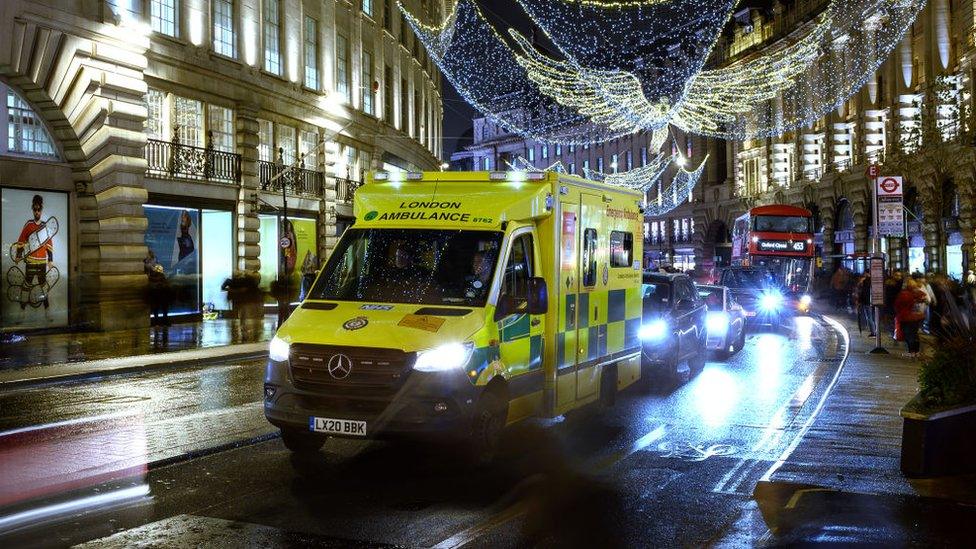
Ambulance staff will be striking this month
It's not just railway workers taking part in industrial action this month.
Lots of other groups are also striking over the next few weeks, including bus drivers, NHS workers and teachers.
NHS workers
Some ambulance staff across England will be going on strike next week and on the 23 January over pay and staffing.
Union leaders say the action follows the government's refusal to negotiate with them over pay.
The strikes won't affect serious emergency calls which will still be responded to.
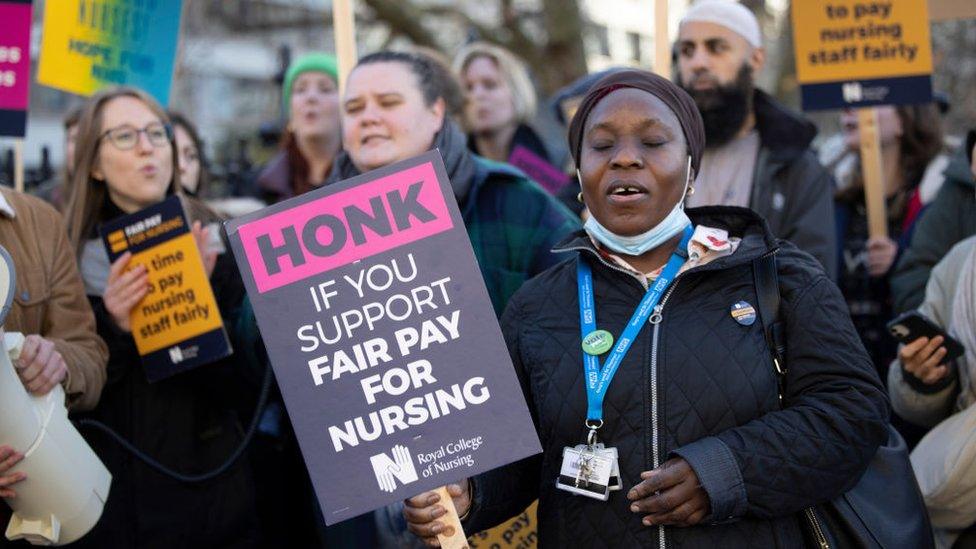
Nurses will also be striking this month over pay
Members of the Royal College of Nursing (RCN) will also be striking on 18 and 19 January in England over pay. This follows nurse strikes which took place in December in England, Wales and Northern Ireland.
Despite the industrial action, nurses in intensive and emergency care are expected to work throughout the strikes.
Teachers
Some primary and secondary school teachers in Scotland will be going on strike on 10 and 11 January.
Members of the NASUWT union are taking action as part of an ongoing dispute over pay.
This follows strikes that took place in November and December last year.
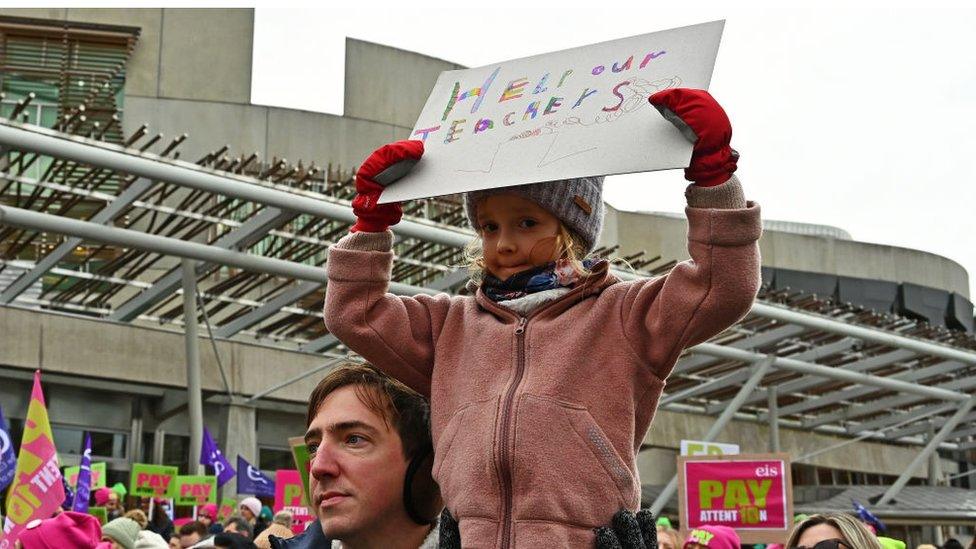
There were teacher strikes in Scotland last year and more are set to take place this month
Teachers in Scotland rejected a 5% increase in their pay last year, arguing for 10%.
A new offer to prevent national strikes included rises of up to 6.85% for the lowest paid. However, the EIS, which is Scotland's largest teaching union, dismissed it as "insulting".
Bus drivers
Bus drivers employed by the company Abellio will be striking throughout this month in London.
Members of the union Unite took part in strikes last month over pay and working conditions, and this will continue across eight days in January.
Abellio offered a pay deal last month which was described as "unacceptable" by Unite's general secretary Sharon Graham.
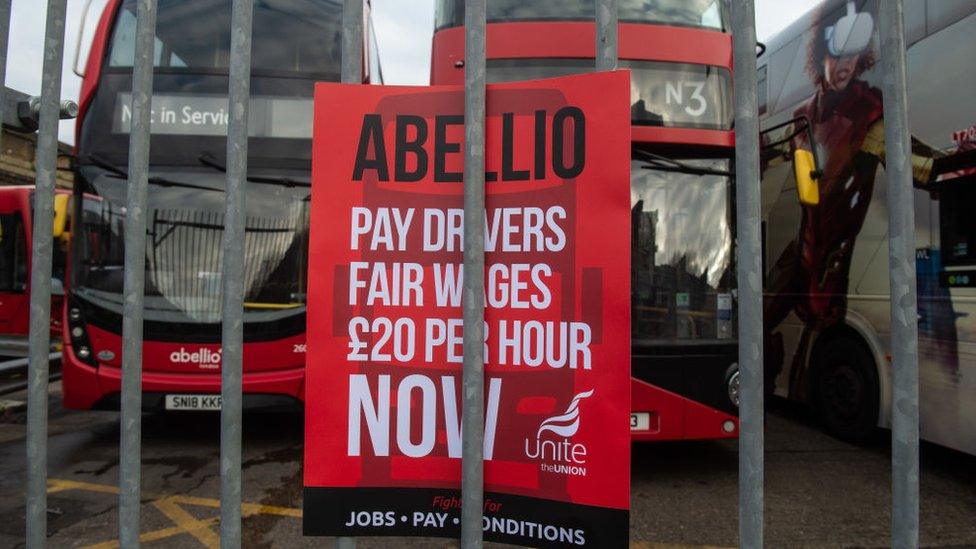
Bus drivers in London are striking over pay and working conditions
Driving examiners
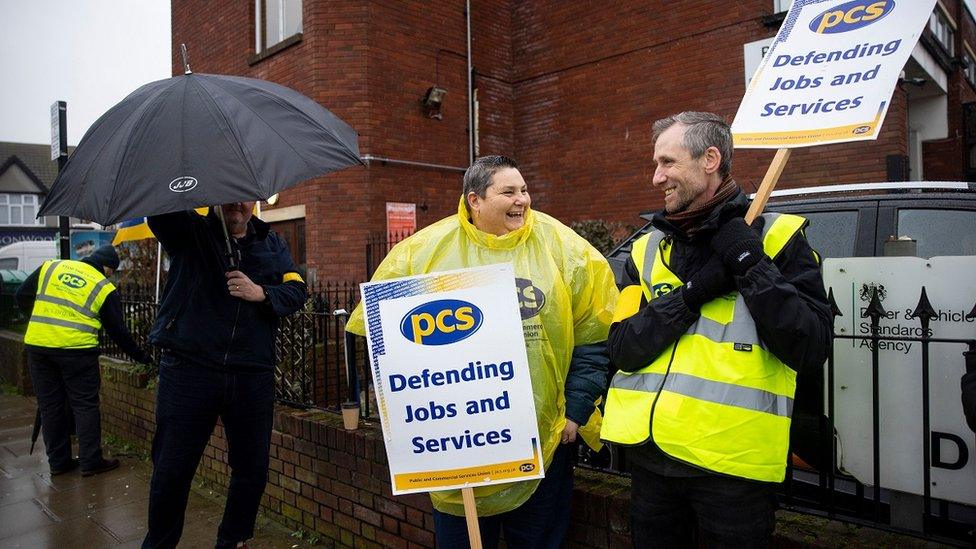
Some driving examiners are also striking
Some driving examiners across England and Wales, who are members of the the Public and Commercial Services (PCS) union, will are also striking in January over pay.
This could affect lots of exams including car and motorcycle driving tests.
The union is urging the government to step in to offer workers a better pay rise in line with the rising cost of living.
The government said the union's demands were "unaffordable".
- Published25 November 2022
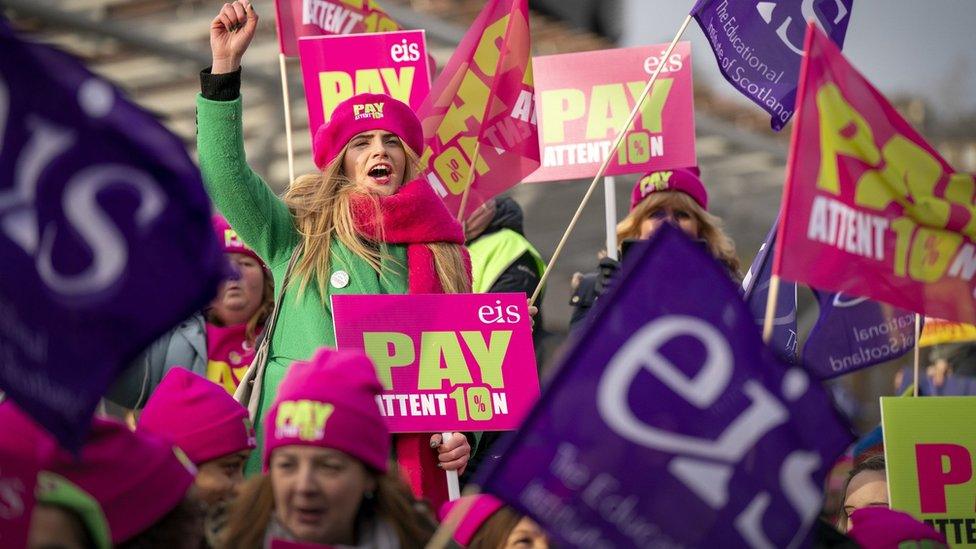
- Published26 August 2022
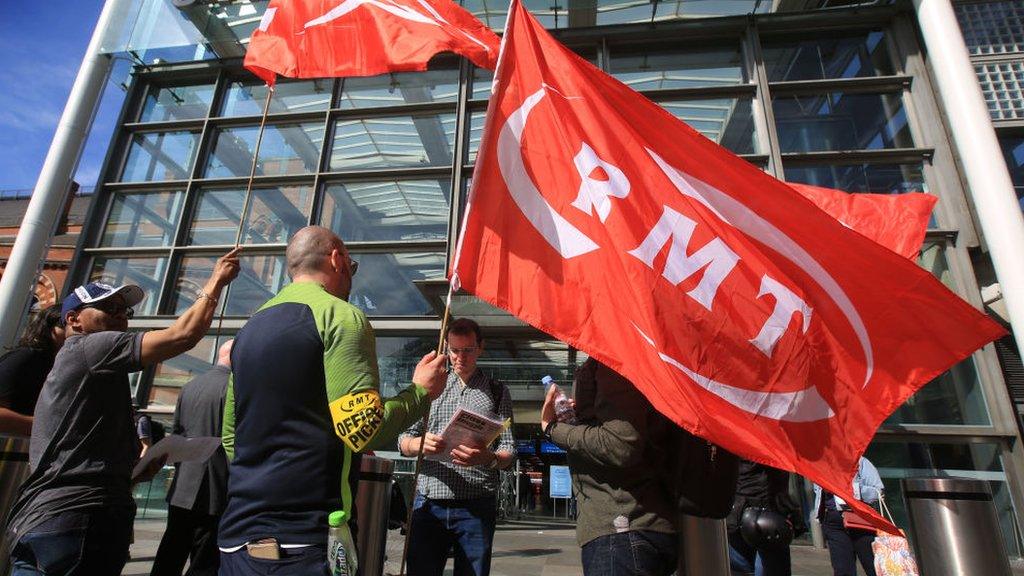
- Published17 December 2022
